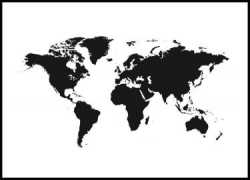>>12638508It's clearly either 'Britain' (in the wider sense of all English speaking states including America, Australia, etc, which politically are separate but culturally act as a single nation), China or Iran. One the one hand, China and Iran are far older than Britain, but on the other hand the main storyline of the past five hundred years has clearly been Britain's rise to power and the spread of British civilization across the globe.
In fact, I think it's best if you don't take 'history' as a single thing but consider it as a series of connected story arcs. Pre-1000BC was the story of Egypt's rise, it's contests against various Middle Eastern powers, and it's fall. Post-1000 is the story of the rise of Rome and Persia; you could make an argument for either being the protagonist. After the fall of Rome in the mid 1st millennium and the Islamic conquest of Persia, a new story arc with China starts, covering the transitional period out of the foundational but basic Han dynasty to the glittering Tang dynasty, through the disaster of the partitions and Mongol invasion, to the restoration under the Ming.
That takes us up to the 16th century, at which point Britain clearly becomes the main focus of the story. Like all great antagonists, France has many of the features of a protagonist, but in the end it turns out to be just a foil for whoever's writing this drama to play against Britain. Fortunately the writers don't let that subplot get stale, and replace France with Germany later in the story arc, while Britain transitions into a multi-state civilization whose centre of gravity now rests in North America.

